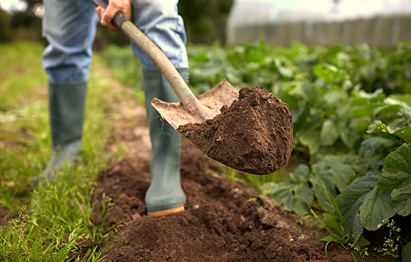Organic Gardening
Advantages of Digging the Soil
There are many advantages of digging the soil. Digging the soil will give you a deeper understanding of the type of soil that you have and how it is going to respond to different types of fertilization, pest control, and treatment. If you have a nice thick layer of soil, then you may not even need to fertilize or pesticide anything. On the other hand, if you have sandy soil, then you may want to use those things to keep your lawn looking great and healthy all year round.
1. Surety of Planting in Right Place
The advantages of digging the soil are that it allows you to make sure that you are planting in the right spot. With some types of soil, you just can’t just place your plants in the middle of the yard and hope that they will grow. With loose soil, there is enough room to wiggle things around so that you get the best possible placement. This is especially true with larger and bulkier items that you want to make sure you plant down deep into the ground.
2. Understanding of Soil Quality
Another advantage of this activity is that you can get a better understanding of the quality of the soil that you have. After you have excavated a little bit, you should take a soil sample and look it over. With some types of soil, it may appear that it has more salt than other types and that it is full of nutrients. Once you have done this and checked it out with a soil tester, you will be able to make sure that you are planting in the right area and that you are getting the proper amount of nutrients for your crops.
3. Decreases the Need for Fertilizer
The fourth advantage of digging the soil is that you will find that you need less fertilizer. Some areas can benefit from a fertilizer that is two times greater than that required for normal produce. Others have soils that hold on to more water, which will allow you to fertilize less. Either way, you will find that you will be able to use less fertilizer, which means that you are using less water and saving yourself money.
4. Prepare for Unexpected Things
The fifth advantage is that you will be prepared in case of unexpected emergencies. If you live in an area where the soil can become flood prone, then you are likely to have a problem with weeds. When you are digging the soil, you can check the area beforehand and make sure that you know which plants are not suitable for that type of soil. Then you can eliminate those plants. You may also need to remove weeds before you plant, but digging the soil and tilling it will make sure that you are ready for any emergency.
5. Improved Health of Roots
Digging the Soil is the process of breaking up the soil to create a bed of loose soil where plant roots can penetrate it and grow. Most of the advantages of digging the soil are from the health of the plant roots themselves. The process of breaking the soil up creates an environment that is more beneficial for the plants to grow in. This allows the nutrients in the soil to be released to the roots so they can take hold and provide the plant with all the vitamins and minerals they need. This process also provides a place for other soil organisms to assist.
6. Availability of Important Factors
By breaking up the soil, air and water can get to the plant roots easier, and at a faster rate. This is important for any garden that aims to get the maximum amount of nutrients available. If you are growing a plant that needs more attention than other plants, then you should consider increasing the amount of soil that can be given to the plant. There will also be an increase in nutrient availability for the plant.
7. Conclusion
The advantages of digging the soil are certainly worth taking a look at. You will be able to enjoy a better soil structure and increase the nutrient level in your soil. In addition to this, you will be increasing the amount of oxygen that your plants can take in. It will also make sure that you have a healthy and beautiful garden.

